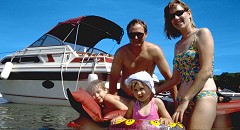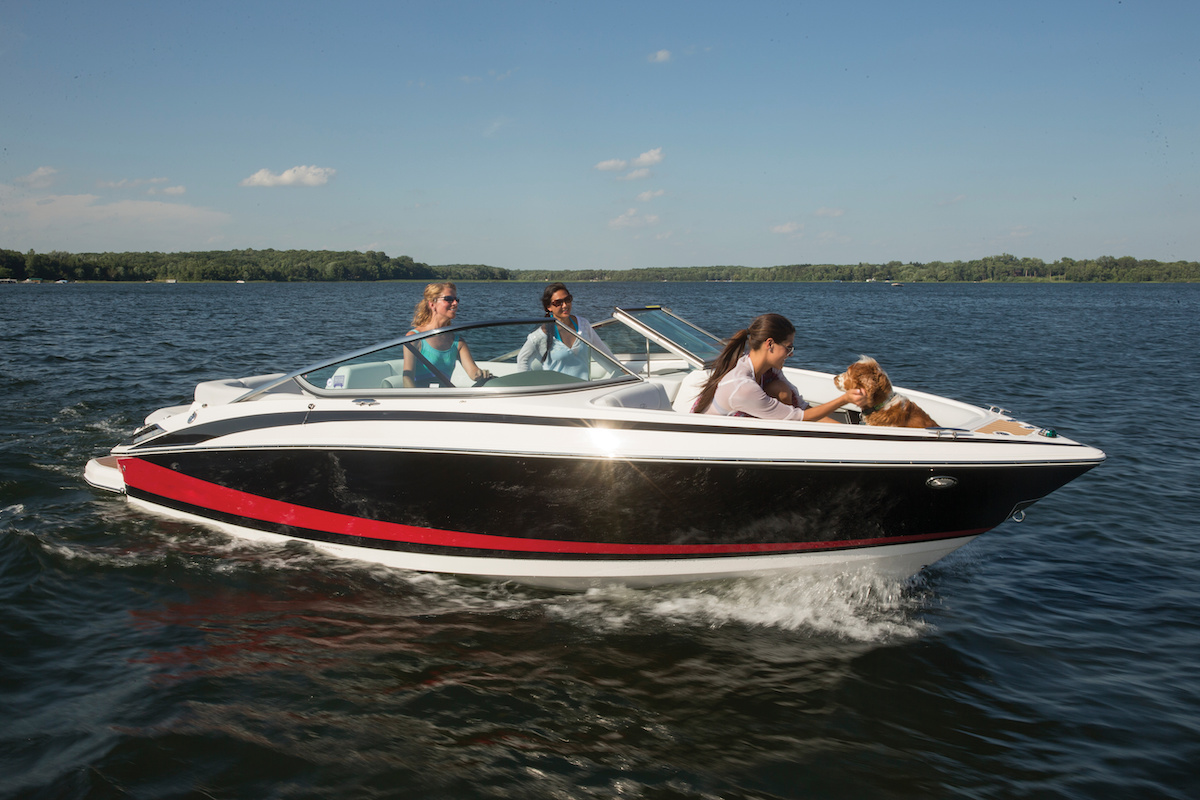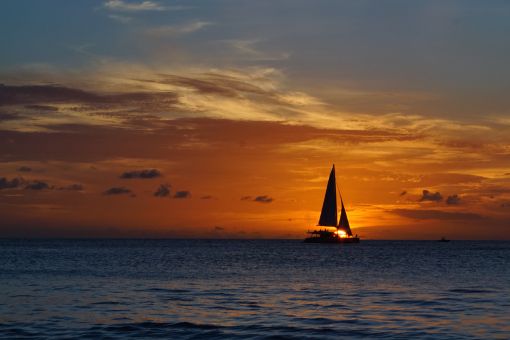If you plan to do more with your boat than tow your wakeboarding teenagers around in circles 100 yards from shore, you’ll need a few items in addition to that towrope. But what you’ll need depends on where you’re based and what type of cruising you’ll be doing. Since offshore “bluewater” cruising is a whole subject entirely unto itself, we’ll look at nearshore cruising, river cruises, day cruises and weekend escapes.
Defining one set of essential cruising gear for all boaters is impossible because of the wide variety of boats sold in the market and the differing skills of their pilots. Local waters further dictate regional specifics that don’t necessarily apply to all boaters. That said, there are a few things that all cruising boaters should have aboard or at least consider thoroughly. We’ll assume that you already have basic safety equipment, such as:
- PFDs
- a throw ring
- a flare gun
The most basic piece of cruising equipment is the VHF radio. Still an option on many new boats, the VHF is indispensable and is not replaced by cell phones, since cell phones are often out of service range while off the coast.
Electronic navigation equipment is today more than just a nicety—it allows boaters to be safer than ever before. Electronic charts give boaters unprecedented accuracy and detail that enable them to pilot around hazards and make informed decisions. Of course, every boat should still carry paper charts (and every captain should take a course in basic chart reading) in case of electrical or equipment failure.
Most chart plotters today incorporate GPS as a standard feature, but some boaters may want them as two separate pieces of equipment for the sake of redundancy. Of course, many will argue that you don’t need either of these: you can incorporate both into your laptop computer.
Having a laptop aboard give you many other advantages, including the ability to create travel logs and maintenance logs. If you boat is so equipped, you can also get WiFi Internet service, which opens a whole other world to you. With Internet you can
- purchase real-time weather reports and marine conditions
- book marina slips in advance
- and perform a host of other useful functions.
Radar, while very useful for boating in highly congested areas, is an expensive investment for the average boater. But for boaters in areas with heavy commercial traffic and often-questionable weather, radar is a worthwhile tool. It, too, can be incorporated into a laptop computer.
Smart cruisers also carry redundant supplies and extra stores of fresh water and fuel. Carrying replacement belts, plugs, wires and other “disposable” mechanical parts is a good idea. You can’t be sure that a service center will carry the parts particular to your vessel should you need repairs. You should also carry fuel treatment to add to your tank in case you take on a load of tainted fuel while you’re away from home. Extra rope is easy to stow and remarkably handy in many situations.
Finally: at least one spare ignition key attached to a floating keyring, and duct tape. Seriously. It’s saved more than one boater.


